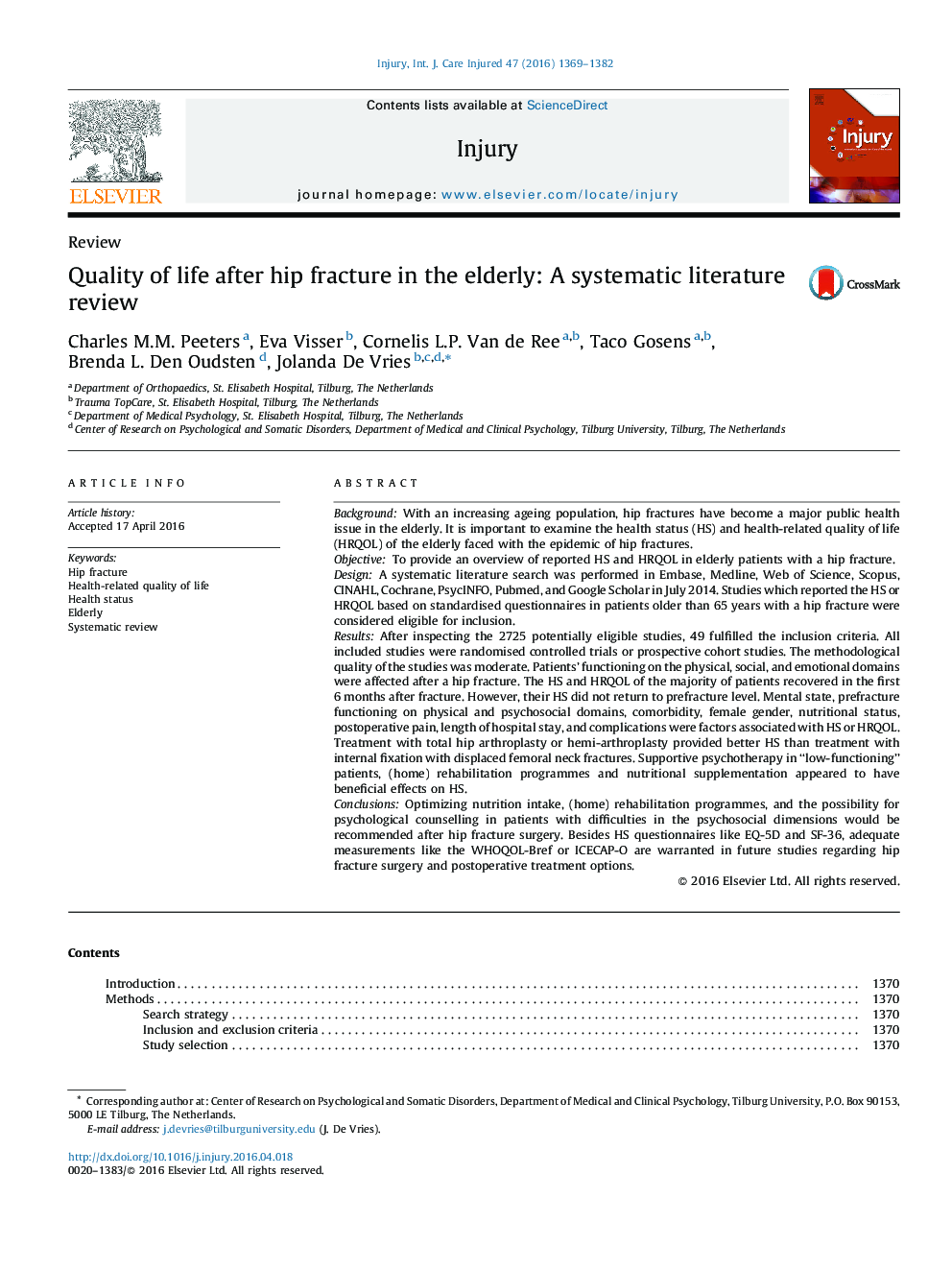| کد مقاله | کد نشریه | سال انتشار | مقاله انگلیسی | نسخه تمام متن |
|---|---|---|---|---|
| 6082716 | 1205971 | 2016 | 14 صفحه PDF | دانلود رایگان |
BackgroundWith an increasing ageing population, hip fractures have become a major public health issue in the elderly. It is important to examine the health status (HS) and health-related quality of life (HRQOL) of the elderly faced with the epidemic of hip fractures.ObjectiveTo provide an overview of reported HS and HRQOL in elderly patients with a hip fracture.DesignA systematic literature search was performed in Embase, Medline, Web of Science, Scopus, CINAHL, Cochrane, PsycINFO, Pubmed, and Google Scholar in July 2014. Studies which reported the HS or HRQOL based on standardised questionnaires in patients older than 65 years with a hip fracture were considered eligible for inclusion.ResultsAfter inspecting the 2725 potentially eligible studies, 49 fulfilled the inclusion criteria. All included studies were randomised controlled trials or prospective cohort studies. The methodological quality of the studies was moderate. Patients' functioning on the physical, social, and emotional domains were affected after a hip fracture. The HS and HRQOL of the majority of patients recovered in the first 6 months after fracture. However, their HS did not return to prefracture level. Mental state, prefracture functioning on physical and psychosocial domains, comorbidity, female gender, nutritional status, postoperative pain, length of hospital stay, and complications were factors associated with HS or HRQOL. Treatment with total hip arthroplasty or hemi-arthroplasty provided better HS than treatment with internal fixation with displaced femoral neck fractures. Supportive psychotherapy in “low-functioning” patients, (home) rehabilitation programmes and nutritional supplementation appeared to have beneficial effects on HS.ConclusionsOptimizing nutrition intake, (home) rehabilitation programmes, and the possibility for psychological counselling in patients with difficulties in the psychosocial dimensions would be recommended after hip fracture surgery. Besides HS questionnaires like EQ-5D and SF-36, adequate measurements like the WHOQOL-Bref or ICECAP-O are warranted in future studies regarding hip fracture surgery and postoperative treatment options.
Journal: Injury - Volume 47, Issue 7, July 2016, Pages 1369-1382
